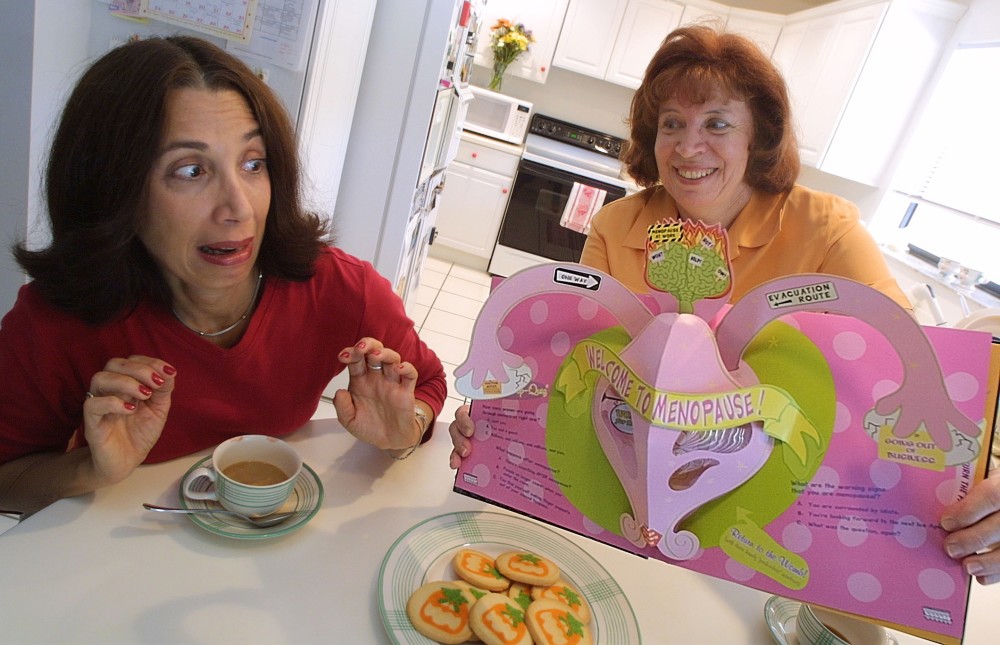By Stacey Burling
The Philadelphia Inquirer.
PHILADELPHIA
After C. Neill Epperson, a psychiatrist who directs the Penn Center for Women’s Behavioral Wellness, listened to many patients complain about their brains as they approached and entered menopause, she had an idea.
Women would tell her that they couldn’t juggle as much as they used to. They had to write something down instantly or the thought would disappear. They felt foggy and disorganized. Some worried that they had dementia.
The symptoms didn’t sound like dementia to Epperson, but they did sound like something else: attention deficit disorder.
She thought, “Wow, these issues are really similar to what you see in ADHD. We need to do something about this.”
She knew the women didn’t really have ADHD, a developmental disorder that starts in childhood, but she wondered if drugs for attention-deficit patients might also help distracted women.
She tried one of them, lisdexamfetamin (Vyvanse), in a small study funded by the drug’s maker, Shire. On average, the 32 patients’ scores rose by 20 points on the 120-point Brown Attention-Deficit Disorder Scale after four weeks on the drug.
Lest you think that a psychostimulant might boost anyone’s performance, Epperson said the drug didn’t help everyone. “The people it helped, it really helped,” she said.
But most of the patients didn’t want to stay on the drug because insurers wouldn’t cover the cost.
Psychostimulants can increase heart rates and blood pressure, so they’re not for everyone.
Epperson discussed her study at two professional meetings last week. It has not yet been published.
She doesn’t know what percentage of women develop executive function symptoms or whether aging men get them at the same time. She studies only women.
She attributes the cognitive changes to the drop in estrogen during menopause. The hormone supports chemical signaling in the brain and promotes healthy brain cells. It is present in both male and female brains.
Pauline Maki, a psychologist at the University of Illinois at Chicago who studies cognition during the transition to menopause, said Epperson’s approach is unusual. “It’s definitely novel,” she said. “It’s a hypothesis that’s certainly worth studying.”
Maki said recent studies have found changes in age and memory as women go through menopause. She is “cautiously optimistic” that most women return to baseline within three or four years after official menopause. Thinking seems most disrupted in the two years before and the two years after menopause.
Maki worries that the prolonged period of hormonal disruption may somehow make women more vulnerable than men to Alzheimer’s disease. She is studying whether early, limited estrogen treatment can help women emerge from this transition with healthier brains.
Estrogen causes changes that are independent of normal brain aging, which also is associated with a decline in executive function.
Maki said that going through menopause is the equivalent of feeling about four years older than you are, brain-wise.
Later, most women will feel themselves again. Researchers don’t yet know whether the brain begins producing more estrogen or begins solving problems in different ways.
Andrea LaCroix, a menopause expert at the University of California, San Diego, said the average age for periods to stop is 51. Typically, women have symptoms from, say, 45 to 55.
She said some women may have trouble thinking because hot flashes keep them from sleeping.
The hormonal transition also occurs at a time when many women are seriously stressed. They’re at peak earning potential and may be helping children, parents, and even grandparents.
“I think we’re in general overloaded with stimuli these days,” she said. “Midlife women have an awful lot to do.”
Epperson said the women in her study were considerably smarter than average. In her practice, she said, the women who are noticing these changes are doctors, professors, CEOs, doing intellectually challenging work that requires lots of juggling.
“The women who notice this are the ones that are pushing the cognitive load really hard,” she said.
The study looked at five domains: organization and activation for work; sustaining attention; sustaining alertness, effort, and processing speed; being able to work while distracted by strong emotions; and using memory and working memory, which is the ability to hold thoughts in your head while working with them.
Problems with emotional interference were not affected by the drug, but the other domains were.
Epperson, who went into menopause four years ago at age 46, takes estrogen herself. She says treatment for cognitive symptoms needs to be tailored to each patient. “No one treatment is good for everybody,” she said.
She isn’t worried that her research will make others question older women. “We can’t pussyfoot around,” she said. “I’m just trying to figure out how to help women, who are going to live longer than men, live the best life they can. I don’t think that’s stigmatizing.”
Maki is in no hurry to medicalize menopause, but thinks medicines have a role for women who are struggling: “If women are doing all the right stuff and they’re still not thinking clearly, why not go for a little chemical help?”
Like others, she said the best thing anyone can do to protect the brain is to exercise.














































































































































































































































































































































































